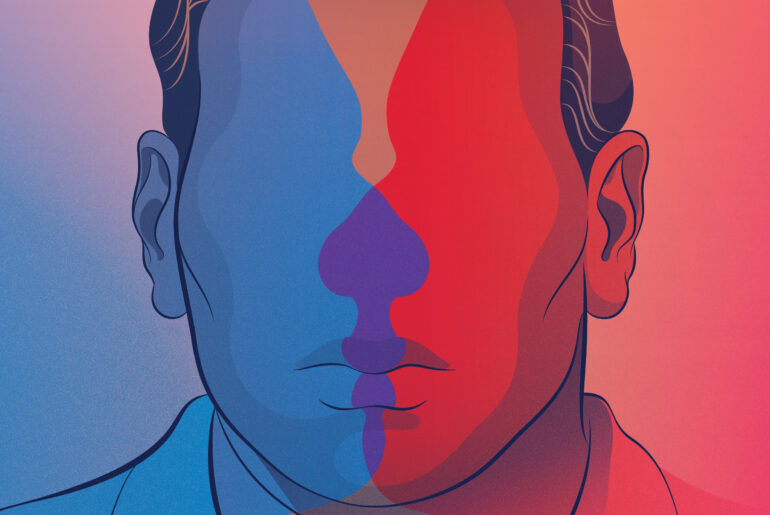Liz Alarcón: Welcome Pulso fam, back to the Pulso podcast. It’s been a while since you’ve heard from us. And since our last season, we have been stepping back, thinking back to the episodes that we ran, and really reflecting on what do we want this third season of our show to look like. One of the exciting surprises we have for you all in this new season is that you won’t just be hearing from me or from some of the other Pulso of teammates, but we have a new cohost. We are so, so, so excited to introduce you to Maribel Quezada Smith, who will be joining us in all of the conversations. Maribel, welcome!
Maribel Quezada Smith: Hola. Thank you so much. Gracias for that amazing introduction. I’m so happy to be here with the Pulso fam. When you guys called me, I was very excited because I’ve been following the Pulso and you Liz as well for a little while. So it was really cool to be invited, to be a part of this family.
Liz Alarcón: You are the perfect addition, Maribel to this podcast. You are a producer, you are a video content editor, you are a multimedia woman extraordinaire. But that’s just a little bit of what you do. Why don’t you tell our audience a little bit more about you?
Maribel Quezada Smith: I am first and foremost, I am a Mexican woman born in Mexico city who immigrated to the United States at age 12. So I am also now an American and well, we’ll talk more about that later. You know, the complexities of that by cultural life that I, that I live or multicultural actually, because I’m also married to a black man and I have a multiracial son. So there have been, there have been a lot of different instances in my life where I felt “ni de aquí, ne de allá”. I’m just a woman that’s complex, like many others out there. On the professional side, I’m a producer, like you mentioned. I just love creating stories.
Liz Alarcón: You see you all. This is exactly why we brought Maribel onto our show, where we share the untold stories and want to hear from the unheard voices in our community. And when we were thinking of what was missing, what do we want to switch up for this next phase of the podcast? We really want to make this next season conversational. We want you all at home to feel like you’re listening to dos amigas, to people you know, asking yourselves about the same things that we’re going to be talking about, about that in between, like Maribel said, about what it means to be Latino in this country. And to be able to really unpack a lot of the questions that we all have as we navigate our identity here, being diferente in the U S. So one of the things that we wanted to do to really introduce Maribel and to have you all get to know her is to play a few clips from her podcast, Diferente. Maribel, why don’t you tell us about this first clip we’re about to listen to.
Maribel Quezada Smith: So this first clip is from the episode called “When Frida Kahlo meets Carrie Bradshaw”. And the reason I created that episode is because I always felt like someone who could encompass all of those things – the artsy and very proud Guerrera Mexican spirit of Frida Kahlo, combined with the fashion icon and love devotee that Carrie Bradshaw is. I mean like when it comes down to it, yes, Frida’s real. Carrie isn’t.
Liz Alarcón: But she’s real to us, Maribel.
Maribel Quezada Smith: She’s real in my heart. And, and to be fair pause there because she’s also a white woman, so there are some complexities there that we would have to get into, however, it’s the spirit that she embodies that I find myself kind of embracing. And so this first episode really talks about how that explains the duality of my life perfectly.
CLIP 1
Liz Alarcón: Oh, man. That is so, so, so relatable growing up in a city and a state here in the US where you are not the majority, which is what you’re speaking to, this experience of, of that love hate relationship. Tell us a little bit more of what it was like growing up and experiencing being diferente.
Maribel Quezada Smith: You know, in that clip, I mentioned the love, hate relationship that I had with myself as well. And you brought it up like, like you said, I was diferente. I liked the Frida Kahlo vibe, and I loved the Carrie Bradshaw vibe, and I just I wanted to be all of the things in my heart. I wanted to embrace all of the cultures. I wanted to celebrate the duality that I was living, but in reality, like to society at that age, I felt like I had to hide and suppress part of me and that part was mostly the Mexican side, my Latinidad. And it was really hard because I had to struggle constantly to fit in and be accepted while at the same time I wanted to just be myself. So that was a constant struggle and it really helped frame who I became as an adult, but not in necessarily a positive way, initially. There was a lot of work that I had to put into myself later in the years, much later in life to really go back to who I am and be true to who I am. So this assimilation and this love, hate relationship with my culture and myself. Was also affecting even the way that people pronounced my name or the way that I would let people pronounce my name. So my name is Maribel as you all now know, but people in the United States wanted to pronounce it Maribel or Mary Bell, which is nothing near what I want to be called. But for some reason back then, I was like, yeah, that’s fine. It’s Okay. Like, I don’t need to press on that. I can let people mispronounce my name and it also helped to wash me down. And it also helped to make me more palatable to people because they were not afraid to say my name. They could just be like Maribel and I would respond. So this next clip that I want you to listen to talks about that and why it’s so important to get your name right when it’s a culturally specific name.
Clip 2
Liz Alarcón: Bueno, Maribel this is just too real. And I’m so proud of you for standing up for the right pronunciation of your name. If people in this country can say Tchaikovsky, they can say Maribel. And it is so important. It’s our identity. It’s, it’s the name that our parents passed on to you. It’s our cultural traditions. It is so important that you bring this up because I know so many of us do feel that shame or, or that annoyance right? Having to correct people all the time. But as you explain, it’s so, so worth it.
Maribel Quezada Smith: How often do you have to correct people when they say your last name?
Liz Alarcón: Oh my gosh. All of the time I get Ella-crone, alacrán, I get so many different kinds of names. And the accent, right? My name has an accent on the o and still when I’m filling out forms online, the accent does not recognize. And so, although things are getting better, there’s still a long way to go for ethnically specific names to be included and accepted in this country.
Maribel Quezada Smith: But I don’t even think it’s just about acceptance. I think it’s also about people just letting go of that embarrassment of trying something new. Cause that’s part of the problem. When I introduce myself to someone and I say I’m Maribel. They have all of a sudden, they have this look on their face like they saw a ghost. They’re like, oh, oh, I can’t say that. They immediately just say, I can’t say that. Oh, or I’m going to ruin, I’m not, I’m going to meet the pronounced that. I’m sorry. They started apologizing instead of just trying. Just try. That’s all I ask. And then when you try and you keep practicing it, you start to say it correctly because honestly, if I can marry a man from Kentucky with a Kentucky accent who figured out how to say my name properly, I think most people in America can say it properly too. No hate to Kentucky.
Liz Alarcón: She said it. She said it, you all. Más claro, imposible. And speaking of Kentucky, I imagine you may have had a similar experience with your husband and your husband’s family, as you all began this relationship. Kentucky is not exactly the most diverse state in America. What was your experience with not only joining his family, but you know, the whole immigrant experience and the experiences with, with racism that so many Latinos experience everywhere in the country? How was that in Kentucky for you?
Maribel Quezada Smith: The only Mexican people in Kentucky that he had met were the people that would like work in the tobacco farms or the horse racing industry. And that was his impression of Mexican culture. That’s it. It was incredibly limited. And so when he met me, he was kind of confused and he had a lot of questions. So we had to do a lot of unlearning together about cultural stereotypes and things like that. His family though, was super open and welcoming to me. So I’m very grateful about that. Now growing up though, in Ohio, it was a different story. I was the only Mexican girl in school. I was the only girl that looked like what I looked like. So it was very confusing for people because they would see me. I’m a curly haired brown skin person. People would see me and they honestly would always assume that I was biracial like white, black. And I had to always explain, no, no, I’m from Mexico. Now, are you sure? They wouldn’t believe me. And so at first I was kind of like riding that wave of just being the ambiguous girl. Then slowly as I matured, I started to kind of bring my Mexican side back into the flow of things. And I started to be more proud about it and let it shine. And as I started to do that, people did not like it. That’s when things got really weird. And in this next clip I explain how I learned and figured out what racism was. Now, heads up this clip is going to be in Spanish. So we’ll sum it up for you after.
Clip 3
Liz Alarcón: In this clip, Maribel is talking about the first time she experienced discrimination, when she auditioned to sing the Star-Spangled Banner at her high school and got picked. As a result, one of her classmates started spreading the racist message, mexicans shouldn’t sing the Star-Spangled banner and it didn’t stop there. The bullying kept going. Her car was egged. Her house was toilet papered. Her car window was smashed, and the racial slur, “spic, go back to Mexico” was spread all over to make sure Maribel knew she wasn’t welcome.
Maribel Quezada Smith: Yeah. Earlier when I was listening to that clip I actually started crying, which is so weird to me because I’ve, I have known this story for so long. I mean, I lived that years ago. I’ve repeated it in my head many times. I’ve shared it with people several times. I’ve never been moved to tears. And for some reason, just a little bit ago, I was tearful about it. It, it really felt like a wave of silence hit me again. I felt like I was right back there, right back in high school feeling that and being shamed for who I was. And I think it’s because in this stage of my life being a mother, I feel like whatever I do or say has a repercussion for my whole family. And so I think I’m just more protective. And so I, I imagined myself in, in that young woman’s shoes who I was back then, really just a girl, and my heart breaks.
Liz Alarcón: Even the principal was weary to take action against the student that was discriminating against you because bullying was not a thing when we were growing up as much as it is now, you know, and my heart breaks for you too, just thinking back at little Maribel in school. It’s an age where we’re all trying to fit in and belong. And so you already were diferente. Imagine going through this experience and, and trying to find your place. No one should be treated like that.
Maribel Quezada Smith: Yeah, and I think that’s why we just have to all learn from the experiences that we have had, in a way that is actually healing. I think that’s been part of the challenge as well. As an immigrant, we go through trauma and we’re like, oh, okay that was horrible. Brush it aside. You know, and then we just keep on going, because we’re such strong people that we just want to keep on going. But I think it’s important that we also address the things that have cost us trauma and cost us issues so that we can truly heal.
Liz Alarcón: Totally. And that’s part of what our audience can expect that we’ll be doing together in the Pulso podcast and the episodes to come. Another thing that we want to talk about which is all too real within our community and that we experience here in the US is the topic, Maribel, of cultural appropriation. I know you have some real experience with that.
Maribel Quezada Smith: Girl, I could just talk about that over and over again. People love to lump all Hispanics together. And Cinco de Mayo is one of those holidays that really brings that back to me. I like, I’m one of those people who’s like dreading the Cinco de Mayo festivities in the United States. Every year, I’m like, oh, here we go again. Because all I see is cultural appropriation everywhere. It’s one of those things where literally all Hispanics get lumped into Oh you’re Hispanic. Oh yeah. Yeah. Cinco de Mayo. Yay. So that’s what this clip is about.
Clip 4
Liz Alarcón: Oh Maribel, you are not exaggerating at all. It is so crazy how this holiday has been co-opted and it still keeps happening. Every year we see the same antics. But, you know it’s crazy that no matter how many times Latino outlets say it, we say it, we specifically tell folks that we’re not all the same and that this is not a holiday to be celebrated like you mentioned, it’s just so frustrating. It’s, it’s a cartoonified holiday that has been co-opted by, by the mainstream and you’re right. So many people still see Latinos as, as that.
Maribel Quezada Smith: Yeah. It’s not okay to just ignore the fact that it is upsetting to a culture when you disrespect it that like that. So no one is saying don’t celebrate it. You want to celebrate it? Whatever, fine. I just think it’s such a made up holiday in the United States. There’s no necessarily cultural ties to what it means when people are celebrating, so I think that’s where my gripe comes in.
Liz Alarcón: And that gripe, you all, that gripe, you all, and conversations about holidays and how we should celebrate it, our personal experience, unpacking Latinidad, and just the many questions and thoughts we all go through as we navigate being diferente, being in between, being Latinos here in the US is exactly what you all can expect more of in this next season of the Pulso podcast. More conversations with Maribel, like this, unpacking all of the things together.




